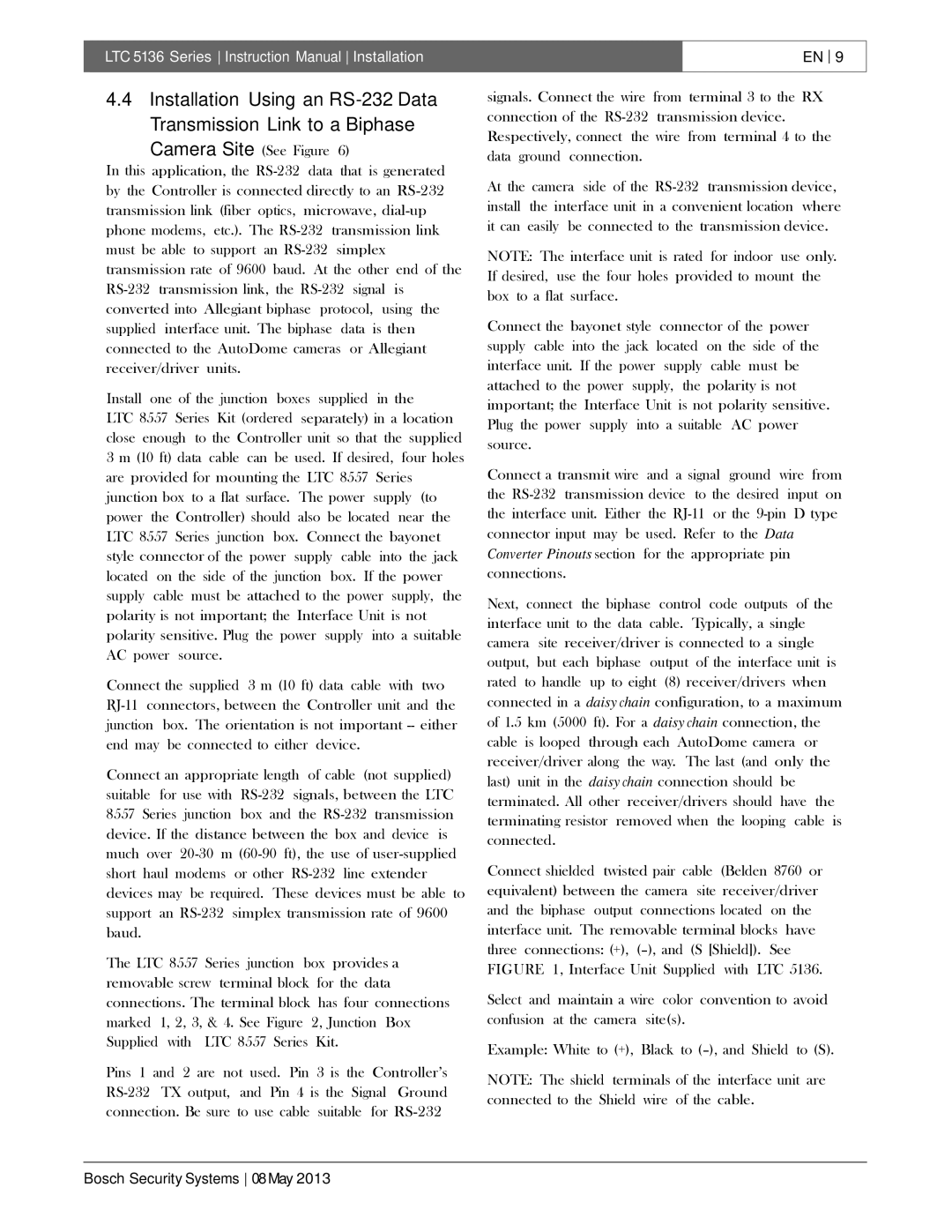LTC 5136 specifications
The Bosch Appliances LTC 5136 is a standout in the realm of modern kitchen appliances, known for its sleek design and innovative technology. This refrigerator not only enhances the aesthetics of any kitchen but also provides top-tier functionality tailored to meet the needs of today's consumers.One of the primary features of the LTC 5136 is its spacious interior. With a substantial capacity, this model is designed to accommodate various food items while ensuring optimal organization. Its flexible storage options include adjustable shelves and bins that can be rearranged to fit larger items, making it versatile for any home.
Energy efficiency is another hallmark of the Bosch LTC 5136. This refrigerator is equipped with advanced energy-saving technologies that minimize electricity consumption without sacrificing performance. The energy-efficient compressor operates quietly while maintaining consistent cooling, which not only benefits the environment but also reduces utility bills for homeowners.
Additionally, the LTC 5136 features a sophisticated cooling system that maintains ideal temperatures and humidity levels. This technology is crucial for preserving the freshness of ingredients and extending the shelf life of perishable goods. The multi-airflow system circulates cool air throughout the refrigerator, eliminating hot spots and ensuring even cooling across all shelves.
Smart connectivity is another impressive aspect of the Bosch LTC 5136. With Wi-Fi capabilities, users can monitor and control their refrigerator settings remotely via a smartphone app. This feature allows you to adjust the temperature, receive alerts for maintenance issues, and even check the status of your food inventory, making it convenient and user-friendly.
The exterior of the LTC 5136 showcases a stainless-steel finish that is both stylish and easy to clean. Its fingerprint-resistant surface maintains a pristine look without the hassle of constant wiping. The intuitive touch controls on the front panel offer seamless navigation through the various settings and features.
In summary, the Bosch Appliances LTC 5136 is a remarkable refrigerator that combines spaciousness, energy efficiency, and advanced cooling technology. Its smart features and modern design make it a perfect addition to any contemporary kitchen, promising reliability and performance for years to come. Whether you're a professional chef or a home cook, this appliance is designed to enhance your culinary experience while providing convenience and efficiency.

